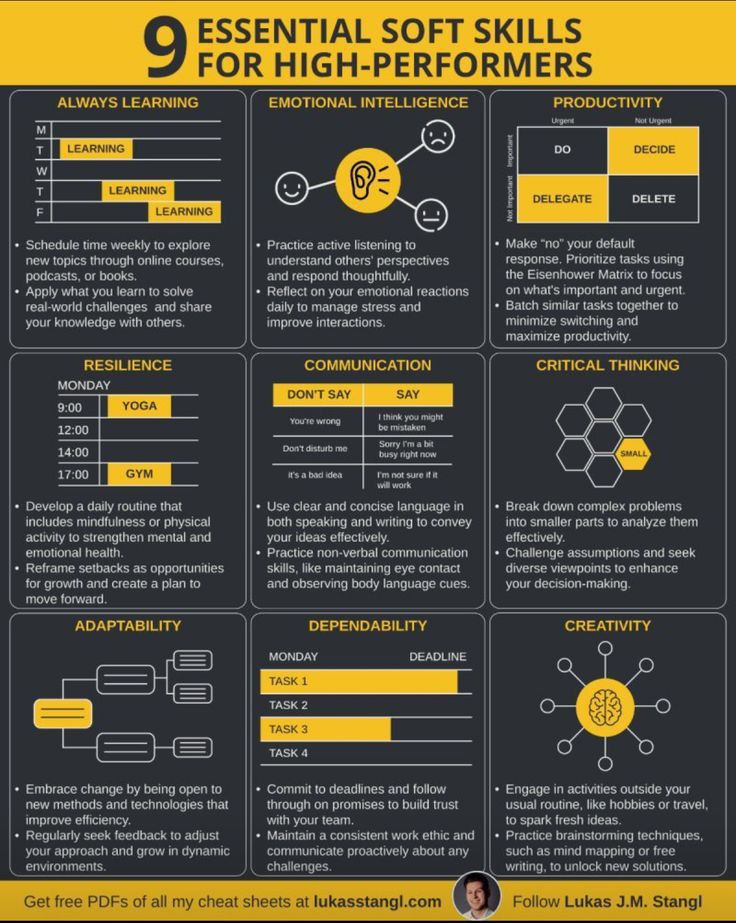
In the ever-evolving landscape of the modern workplace, technical skills alone are no longer enough to guarantee success. High performers, those who consistently excel and drive results, possess a unique blend of technical expertise and highly developed soft skills. These intangible qualities are the secret sauce that propels individuals to the top, enabling them to navigate complex situations, build strong relationships, and achieve remarkable outcomes.

Here are 9 essential soft skills that every high performer should cultivate:

1. Communication: Effective communication is the cornerstone of success in any field. High performers are masters of articulating their ideas clearly and concisely, both verbally and in writing. They actively listen to others, seeking to understand different perspectives and fostering open dialogue. Their ability to communicate effectively allows them to build consensus, motivate teams, and deliver impactful presentations.

2. Collaboration: In today’s interconnected world, the ability to work seamlessly with others is paramount. High performers are team players who actively contribute to shared goals, respecting diverse viewpoints and fostering a collaborative environment. They understand that success is often achieved through collective effort and readily share their knowledge and expertise to empower others.

3. Problem-Solving: High performers are not afraid of challenges. They embrace problems as opportunities for growth and innovation. Their analytical minds enable them to identify root causes, develop creative solutions, and implement effective strategies. They are adept at gathering information, weighing different options, and making informed decisions.

4. Adaptability: The business world is constantly changing, and high performers thrive in this dynamic environment. They are flexible and open to new ideas, readily adjusting to shifting priorities and unexpected challenges. Their ability to adapt allows them to stay ahead of the curve, embrace new technologies, and navigate unforeseen circumstances.

5. Time Management: High performers are masters of their time. They prioritize tasks effectively, manage their workload efficiently, and consistently meet deadlines. They are proactive in their approach, anticipating potential obstacles and developing contingency plans to ensure smooth execution.

6. Emotional Intelligence (EQ): High performers possess a keen understanding of their own emotions and those of others. They are self-aware, empathetic, and skilled at managing their emotional responses. This allows them to build strong relationships, navigate difficult conversations, and foster a positive and productive work environment.

7. Leadership: High performers inspire and motivate others, even without formal authority. They possess a clear vision, set high standards, and empower their teams to achieve exceptional results. Their leadership style is characterized by empathy, trust, and a genuine commitment to the success of their team.

8. Critical Thinking: High performers are analytical thinkers who challenge assumptions, question the status quo, and seek evidence-based solutions. They are not afraid to think outside the box, explore alternative perspectives, and make informed decisions based on careful consideration.

9. Resilience: High performers are not deterred by setbacks or failures. They view challenges as opportunities for learning and growth. Their resilience allows them to bounce back from adversity, maintain a positive attitude, and persevere towards their goals.

Cultivating these essential soft skills is an ongoing journey, requiring self-awareness, continuous learning, and a commitment to personal growth. By investing in the development of these intangible qualities, individuals can unlock their full potential and achieve remarkable success in their careers and beyond.







Leave a Reply